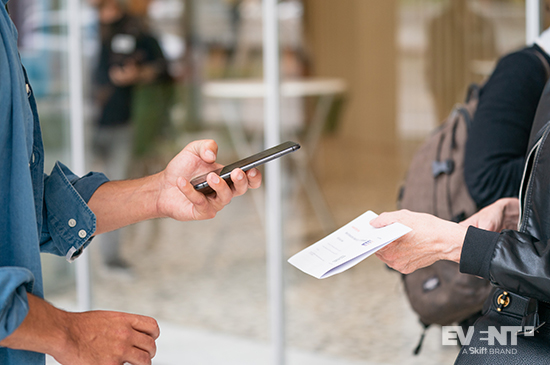As eventprofs begin to resume live events amid the pandemic, they’ve had to completely rethink most aspects of in-person gatherings, including F&B setups, venue capacities, and travel arrangements.
In addition, several venues and event organizers have been exploring the possibility of implementing onsite testing as a way to further ensure attendee safety, and in keeping with 2020’s burst of event tech innovation, some providers are looking to radically streamline the process.
Following the recent news that a 90% effective Covid-19 vaccine may soon be available, Ticketmaster announced that it is looking into developing a feature that would allow planners to put the onus for testing and vaccination on the attendee before they arrive at the event. It would then validate the testing and vaccination claim with medical institutions to help planners determine who can be safely admitted.
Facing the reality that testing and vaccination are an inevitable part of the return to normalcy, this could very well be a gamechanger for live events in 2021 and allow for a faster industry recovery.
Enabling Safe Access to Events
Given the nature of its platform, Ticketmaster’s plans to verify testing and vaccinations are aimed at enabling the return of live music events, but any event that uses the app for ticketing would be able to use this feature. If it works, it’s also reasonable to assume that other ticketing platforms would soon implement a similar process.
Armed with the ability to check whether attendees have been vaccinated or have recently tested negative for the virus, planners would be able to limit access to their events based on compliance with local safety guidelines and regulations.
It’s important to note that, contrary to a misleading Billboard.com article, Ticketmaster has emphasized that it cannot force anyone to get tested or vaccinated. Instead, it would simply be providing the infrastructure necessary to verify attendees’ health records, and the implementation and enforcement of any regulations would ultimately be up to the event organizers.
The backlash on social media — largely a product of Billboard’s initial piece — saw hyperbolic statements that took Ticketmaster’s announcement to mean that the vaccine was going become mandatory for any participation in social life. (In reality, the risk mitigation is what will inevitably make this mandatory, not Ticketmaster’s allowing event planners to actually enforce it more easily.)
A more valid line of criticism speculated about potential privacy violations, which is a bit concerning considering that Ticketmaster is now being fined £1.25million by the ICO for “failing to keep its customers’ personal data secure” in a 2018 data breach.
However reasonable it is to expect event-goers to get tested or vaccinated as a condition for entry, planners will need to be very careful and precise in their messaging in order to successfully implement such a policy if and when it becomes possible. Prospective attendees will need assurances that their data is being handled responsibly.
That said, many others are excited for any chance to return to events, and in all likelihood, there will be more than enough willingness to comply with such requirements.
IN CONCLUSION
Ticketmaster has stressed that this plan is still under consideration — as are several others — but this type of feature promises to greatly simplify the challenge of Covid safety procedures at in-person events, should planners choose to utilize it.
Of course, this development hinges on the finalization and widespread release of a very effective vaccine, which we may not see for several more months. However, the idea that eventprofs may soon have a reliable and concrete way to assess health risks is definitely encouraging for an industry in desperate need of a way forward.





